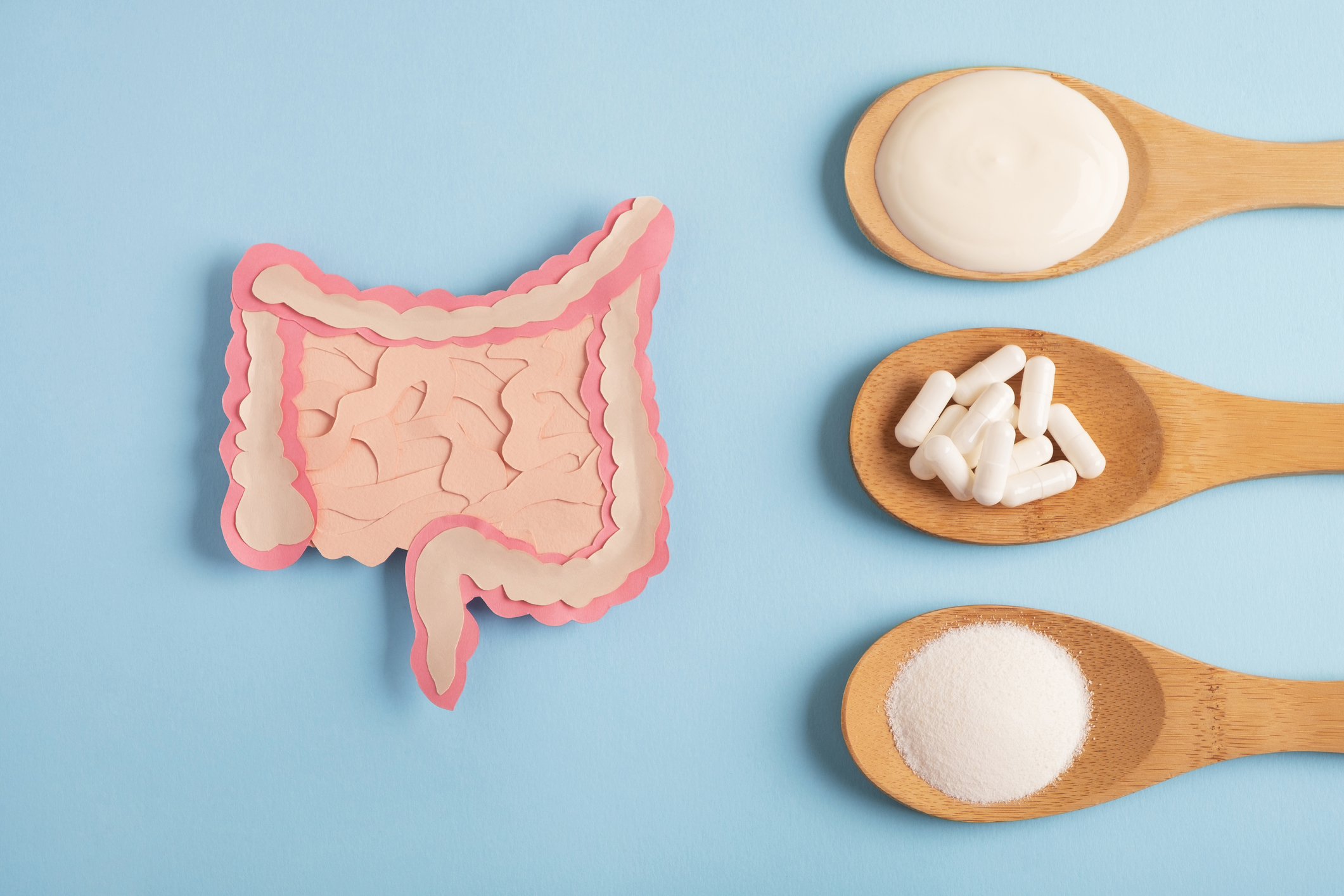A healthy gut is tied to so many positive outcomes throughout the body. The previous blog by Dr Linia Patel talked about the importance of probiotics in helping the gut microbiome thrive. This blog will focus on prebiotics.
In case you missed part 1, you can check it out here.
What are prebiotics?
A good visual way that is often used to explain prebiotics is to think of them as fertilisers for our gut microbiome garden. Prebiotics are nutrients that support the growth and activity of the healthy bacteria in your gut. They are a type of dietary fibre typically found in over 35,000 plant species. The human digestive system is not able to digest prebiotics, meaning they arrive largely intact in the colon where the healthy bacteria can digest them. A by-product of this process yields short-chain fatty acids. The benefit of prebiotics is primarily to break down into the benefits these short-chain fatty acids have on the gut microbiome and thus on our overall health. They improve your metabolic and overall health by helping provide energy to your colon cells, producing necessary mucus, aiding in reducing inflammation and promoting good immune function.
Where are prebiotics found?
The main prebiotics include inulin, fructo-oligosaccharides (FOS) and galacto- oligosaccharides (GOS). Some foods like onions, garlic, artichokes, chicory root, asparagus and leeks are naturally higher in prebiotics; however, the recommendation is not to fixate on eating specific high-prebiotic foods or to rush to take supplements but to ensure you eat a diverse range of plant-based foods.
The science of prebiotics
Historically, prebiotics have been under researched in comparison with probiotics; however, this has started to change in the last few years. Interestingly, science is now suggesting that prebiotics may be just as important as probiotics in promoting gut health.
Emerging evidence suggests there are benefits of prebiotics when it comes to:
- maintaining a healthy gut microbiome
- improving blood-sugar control
- appetite regulation
- supporting bone health
- optimising immunity by signalling immune cells to spring into action
- lowering inflammation and therefore reducing the risk of chronic diseases like colon cancer
- stimulating the production of hormones that aid appetite suppression
- regulating mood.
There are no standard recommendations for prebiotic intake, although research suggests that consuming at least 3-5g of prebiotics daily can support overall health. You can achieve this by meeting the daily recommended total fibre intake of 25-38g daily.
When to consider a prebiotic supplement
When looking to optimise gut health, a food first approach is a must. Not only will you get the benefits of probiotics but also you get all the antioxidants and vitamins and minerals that are a part of these foods. For a healthy individual wanting into increase your prebiotic intake, recommendations are that you increase probiotics in your diet first by eating a variety of different plant-based foods.
However, here are a couple of reasons why you might consider taking a prebiotic supplement:
- You have trouble eating enough wholegrains, fruits and vegetables; for example, if you suffer with irritable bowel syndrome (IBS) and your dietitian has recommended you go on low FODMAP diet, then a prebiotic supplement can help to fill the gap in fibre intake.
- You have recently taken antibiotics. Antibiotics wipe out both the good and bad bacteria, so taking prebiotic supplements with probiotics can help repopulate your GI system with friendly microbes.
Of course, because everyone’s digestive system is unique, it is a good idea to get a personalised recommendation from a health professional as they can help you navigate which supplement would be best for you.
How to choose a prebiotic supplement
Supplements are poorly regulated so, if you choose to take a supplement, keep the following in mind:
- Ensure the supplement contains a known and scientifically proven prebiotic. Look for FOS, GOS, resistant starches, dextrins or guar gum on the label.
- Make sure there are enough prebiotics to make a difference. A few hundred milligrams will not make an impact: 3-5g is needed to support health.
- Look for a product that is third-party verified. This means that, besides the manufacturer, there is a third party that is checking to ensure the product contains the ingredients they say they do.
Take-home messages
- Base your diet on plant-based food. Choose varied and diverse foods. Cook with garlic and onions. Mix asparagus into rice and pastas. Swap out rice or potatoes for legumes a couple of times a week. Top porridge, smoothies and cereals with mixed seeds.
- Eat 30 different plant-based foods a week to ensure variety and diversity.
- Speak to a dietitian for personalised supplement advice.
References
- Quigley et al (2019), Prebiotics and probiotics in digestive health, Clin Gastroenterol Hepatol., 17(2): 333-344.
- Sanders et al (2019), Dietary fibre and prebiotic and gastrointestinal microbiota, Gastroenterol Hepatol., 16(10): 605-616.
- Gibson G et al (2017), Expert consensus document: The International Scientific Association for Probiotics and Prebiotics (ISAPP) consensus statement on the definition and scope of prebiotics, Nat Rev Gastroenterology Hepatol., 14(8): 491-502.








